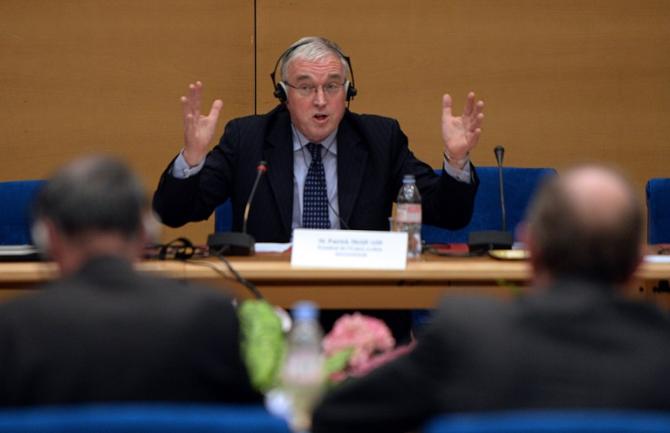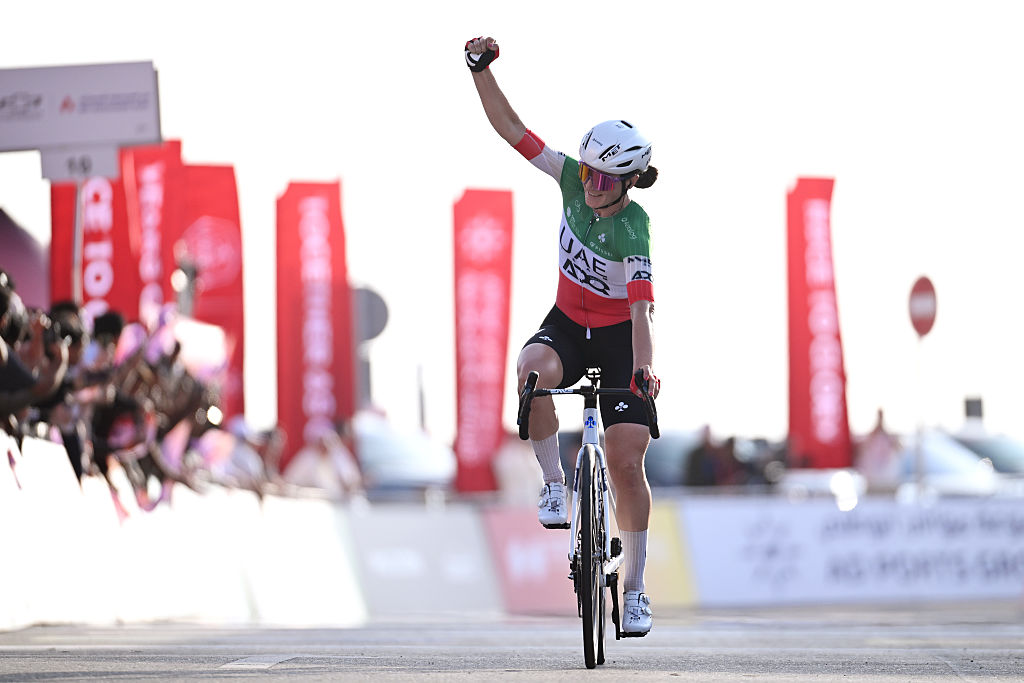UCI Congress: a rare look into cycling’s inner workings
Blow by blow coverage of Cookson's march to victory
The latest race content, interviews, features, reviews and expert buying guides, direct to your inbox!
You are now subscribed
Your newsletter sign-up was successful

Because of the highly contentious nature of the UCI presidential election, the organisation took the rare step to invite the media and the public to observe the UCI Congress meetings in the grand Michelangelo art-lined Palazzo Vecchio where the winner would be decided.
The first order of business was an opening address by Pat McQuaid, who would be presiding over his last Congress by mid-afternoon. He gave general comments on the state of cycling, calling attention to the increased globalisation of the sport under his watch.
The atmosphere heated up when the head of the UCI ethics commission, Peter Zevenbergen, presented four complaints which had been sent to the commission: an objection to a letter McQuaid sent to the presidents of the national federation regarding meetings between his opponent Brian Cookson and Russian oligarch and UCI management committee member Igor Marakov, insinuating there were "underhanded dealings".
The second related to the nomination of the African delegates, but was dismissed. The third related to the dossier which contained allegations of misconduct against McQuaid, and the fourth to allegations by Greece that Cookson attempted to buy their vote with a 25,000 Euro donation to the Tour of Hellas. No evidence was available to the commission in either of the final two complaints, so no decision was made.
Because of the seriousness of the alleged misdeeds compiled in the dossier and the Greek allegations, Zevenberg gave the congress an option to delay the presidential vote until the commission could examine the evidence, but there was no interest.
Constitution to resolution
Next up was a vigorous but ultimately pointless debate over whether or not to amend the UCI constitution to allow the incumbent president to automatically stand for re-election. Richard Leggat of New Zealand put forth a motion to suspend any changes to the constitution until the proposals could be better considered.
The latest race content, interviews, features, reviews and expert buying guides, direct to your inbox!
During the debate, it was asked whether or not the management committee in its meeting the previous day had made any recommendations on the amendments, with McQuaid stating none had been come. Makarov chimed in, saying this was not true, that the committee had decided that it would be unprecedented to change the rules on the day of the congress. While McQuaid clarified that no formal recommendation had been made, Oceania's Tracy Gaudry uncovered a circular argument, in which they were told that they did not have the right to do so, that it was up to the Congress to make the recommendation, but now Congress was asking for their recommendation.
Leggat persisted in bringing his motion to the floor, and UCI legal counsel Philippe Verbiest had to consult the constitution to see if that was possible, ultimately coming back to announce that it was. When the vote was in, the option to debate the amendments today did not have majority support, putting one nail in the McQuaid presidency coffin.
A new life of Brian
Next came the presidential election, and the address from each candidate. While Cookson touted his platform of change and promised to make "a clean break from the past" to restore trust in the sport, McQuaid fired back in his statement, saying he doubted Cookson would be a break from the past since he had been on the management committee.
McQuaid further attempted to install fear in the delegates, stating that if he wasn't re-elected that cycling would lose its place on the International Olympic Committee.
"Cycling has too much to lose from change for the sake of change," he said. "The UCI cannot afford to have a president who is starting from zero when it comes to building relationships in the IOC."
The speeches were done, but there couldn't be a vote until one last item was debated: that of the validity of the nomination of McQuaid. The UCI brought in an army of experts, each with its own supporting evidence - one saying that the withdrawal of the Swiss federation's nomination was not allowed because it came after the period for nominations.
It was the first any of the delegates had heard of this argument, and, while the delegate from Colombia, Jorge Ovidio González, repeatedly and vigorously tried to defend the validity of McQuaid's nomination, Klaus Meuller raised the point that the nomination of two countries from two different continental federations - the Thailand nod coming from Asia, the Moroccan from Africa - it would throw into confusion, not just the presidential election but that of the management committee.
The room was filled with people getting increasingly tense and confused by the circuitous legal arguments and even vocally wishing they could just go out and watch the U23 men's road race that was going on outside. Finally, at long last, Brian Cookson himself spoke and said "we've had enough of this" - a thought just about everyone in the room shared, and the vote was on.
When the vote was called for Cookson, the room erupted into a vigorous cheer of relief, far more enthusiastic than any previous applause during the Congress.

Laura Weislo has been with Cyclingnews since 2006 after making a switch from a career in science. As Managing Editor, she coordinates coverage for North American events and global news. As former elite-level road racer who dabbled in cyclo-cross and track, Laura has a passion for all three disciplines. When not working she likes to go camping and explore lesser traveled roads, paths and gravel tracks. Laura specialises in covering doping, anti-doping, UCI governance and performing data analysis.
